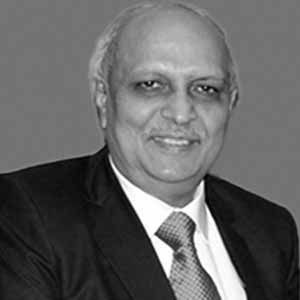Live
- Russia provided North Korea with anti-air missiles in exchange for troop deployment
- PCB appoints Azhar Ali as head of youth development
- Deepam-2 Scheme Reaches 5 Million Beneficiaries in Three Weeks, says Nadendla Manohar
- Will RG Kar tragedy impact Bengal bypoll results?
- BGT 2024:25: Josh Hazlewood picks four as Australia bundle out India for 150
- BRS rallies support for Lagacharla ‘victims’
- COP29: Scientists, artists, faith leaders call for greater commitment to delivery of climate finance
- Woman donates liver to husband, saves life
- Mechanic Rocky Review: Thrilling Action Film with Twists and Great Performances
- Ponguleti Sudhakar Reddy rubbishes Rahul Gandhi's claims on Modi and Adani
Just In

The recent decision of the Government of India to fill up Joint Secretary-level posts through lateral entry stirred up a hornet’s nest. In the IAS WhatsApp groups there is any amount of discussion on this issue. There are articles written both in favour as well as against the proposal from eminent personalities both from the IAS as well as from other fields.
The recent decision of the Government of India to fill up Joint Secretary-level posts through lateral entry stirred up a hornet’s nest. In the IAS WhatsApp groups there is any amount of discussion on this issue. There are articles written both in favour as well as against the proposal from eminent personalities both from the IAS as well as from other fields. Before examining the desirability of the government’s proposal, it’s worthwhile to take stock of the present strengths and weaknesses of IAS as a service to play an important and meaningful role in the service of the nation in days to come.
When I was in service, a senior officer one day narrated to me an anecdote. When Neelam Sanjeeva Reddy succeeded Damodaram Sanjeevaiah as the Chief Minister of Andhra Pradesh, leaders from his community from Kurnool district went and complained to him that the then Collector of Kurnool who was a promotee officer did all the biddings of Sanjeevaiah and acted against the interests of their community and requested him to transfer him. Neelam Sanjeeva Reddy was said to have laughed and told them that there was no need to transfer the officer and that from the following day he would start doing ‘our bidding.’
What Sanjeeva Reddy commented with reference to one promote officer 60 years back is today true of the majority of the IAS officers. The sad part is there are no shared values and ideals to which all or most of the officers subscribe. It is as heterogeneous a group as any other comprising of officers with different levels of commitment honesty and efficiency.
It is not very difficult for a politician to get an officer of his choice for a particular post to serve his political and financial interests. The fact that in very crucial departments same officers continue even after a change in government not because of their levels of efficiency and honesty but because they are found to be most convenient strengthen the remarks made by Neelam Sanjeeva Reddy which now can be applied to the service with some exceptions.
Those who are not willing to compromise become irrelevant to the system, since there are enough numbers of people to do that job. The sidelined officers turn cynical further reinforcing their irrelevance to the system. Among those who are willing to do the biddings of the politician, there are some who still remain honest and compromise to stay relevant and contribute and those who play along with the politician and also start benefiting in the process.
Thus today we don’t have a steel frame which served the British Empire or as envisaged by Sardar Patel but an iron frame which is rusted. With a set of investigating agencies which cannot distinguish between a bona fide dynamic decision and a mala fide decision, even the few honest officers have lost what little initiative is left in them. They are trying to be procedurally more correct rather than concentrating on delivery.
IAS, undoubtedly, brings with it rich and varied experience to the post of Joint Secretary-level since they serve at the local, state, as well as the central government. But unfortunately at the state-level, tenures are so short and transfers so common most of them fail to pick up reasonable professional knowledge in any particular department. This has become the biggest bane of the service. Certain departments at the central level are becoming highly specialised and need constant updating on the subject – an opportunity members of the service miss since they go from place to place.
Today, with the opening up of the economy, IAS is not the only option available to the bright and the young. Hence a system which facilitates getting back the services of such people laterally is a welcome initiative. The only question that is more relevant is why the UPSC is being left out of the whole process. If the central government can follow a transparent objective process to select the best in the field to fill up these posts, that would in fact be enriching the governance of the country by bringing in talent laterally. In my opinion this experiment is long overdue but there should be no compromise in the process of selection of these officers.

© 2024 Hyderabad Media House Limited/The Hans India. All rights reserved. Powered by hocalwire.com







